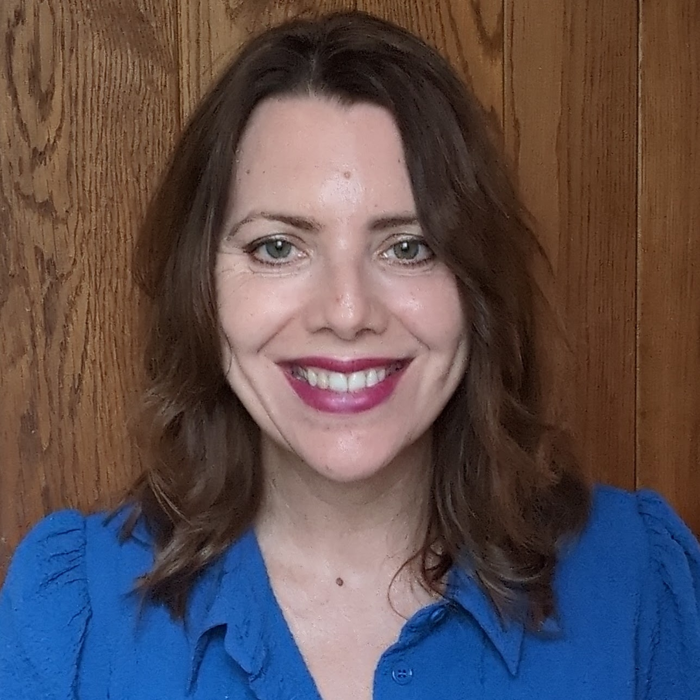Music Reading for Students with Learning Disabilities
Thursday 22nd February 2024, 5:00 PM - 7:00 PM (London Time)
There are music students in private studios and school classrooms who are not readily learning to read music through standard instruction. Research into dyslexia gives us insight and guidance to how students with learning disabilities can be taught in a way that effectively builds the neural pathways for literacy. Using the style of teaching first created by the dyslexia researchers Stillman and Gillingham, Multisensory Structured Language (MSL), we can redesign our approach to teaching music reading that follows a strict, logical and effective order to build the neural pathways that are necessary for students with learning disabilities to learn.
Music reading is most often taught as a secondary skill to performing skills, and therefore does not follow its own logical, systematic approach. This negatively effects students who are not neurologically wired to learn through our traditional standard instruction. Applying the principles of MSL instruction to music reading instruction reorganises the steps to learning in surprising and effective ways. Adapting this scientifically researched approach to music reading makes it possible for struggling students to have access to music literacy.
This course will review the research surrounding certain learning disabilities such as dyslexia, dyscalculia and ADHD, and the research-based solutions that have been found to work successfully. We will examine current methods of music reading pedagogy, and then compare that to systems specifically designed to accommodate students with learning disabilities.
Dr Elizabeth Morrow
Dr Elizabeth Morrow, Professor Emerita, was awarded the degree Doctor of Musical Arts in Cello Performance from the University of Southern California. As a recitalist, she has concertized extensively in Europe and North America. An award-winning pedagogue, Dr Morrow has been an active presenter for the American String Teachers Association and Texas Music Educators Conference.

Attend this course for as little as £22 as part of the Voice Professional Training CPD Award Scheme.
Learn MoreSorry, this is an archived short course...
We have plenty of upcoming short courses coming soon. See details of some of them below or look at the full list of short courses.

Tuesday 13th January 2026
5:00 PM - 6:30 PM
Tuesday 20th January 2026
5:00 PM - 6:30 PM
Tuesday 27th January 2026
5:00 PM - 6:30 PM
Tuesday 3rd February 2026
5:00 PM - 6:30 PM
Tuesday 10th February 2026
5:00 PM - 6:30 PM
(London Time)
Introduction to Postgraduate Academic Skills - Join Live!

Debbie Winter
Are you ready to elevate your academic journey? Hosted by our very own Debbie Winter, join our comprehensive Introduction to Academic Skills course, designed to equip you with essential tools and strategies for success in higher education. Perfect for bridging the gap between undergraduate and postgraduate study, this course offers a pathway to our full MA for students without an existing degree. We offer both live, interactive sessions and standalone, pre-recorded content.

Thursday 15th January 2026
5:00 PM - 7:00 PM
Thursday 22nd January 2026
5:00 PM - 7:00 PM
Thursday 29th January 2026
5:00 PM - 7:00 PM
Thursday 5th February 2026
5:00 PM - 7:00 PM
Thursday 12th February 2026
5:00 PM - 7:00 PM
(London Time)
Trauma-Sensitive Voice Professional Certificate with Dr Elisa Monti

Dr Elisa Monti
Updated for 2026, this five-part certificate course is designed to help participants learn the theory and practice of trauma-sensitive approaches. The concepts and activities included are tailored to meet the needs of voice specialists who want to acquire more specific tools to navigate the space with their students and colleagues.

Monday 9th February 2026
5:00 PM - 7:00 PM
(London Time)
Certificate in Applied Voice Pedagogy with Adam Roberts

Adam Roberts
Spring Immersive - live and interactive learning! This 12-week online programme is designed for voice professionals committed to deepening applied voice pedagogy skills and advancing professional practice. The course offers a rich environment to reflect on your teaching philosophy and develop applied pedagogical techniques. It is ideal for voice teachers, coaches, therapists, and performers seeking to bridge foundational knowledge with practical, student-centered applications.
